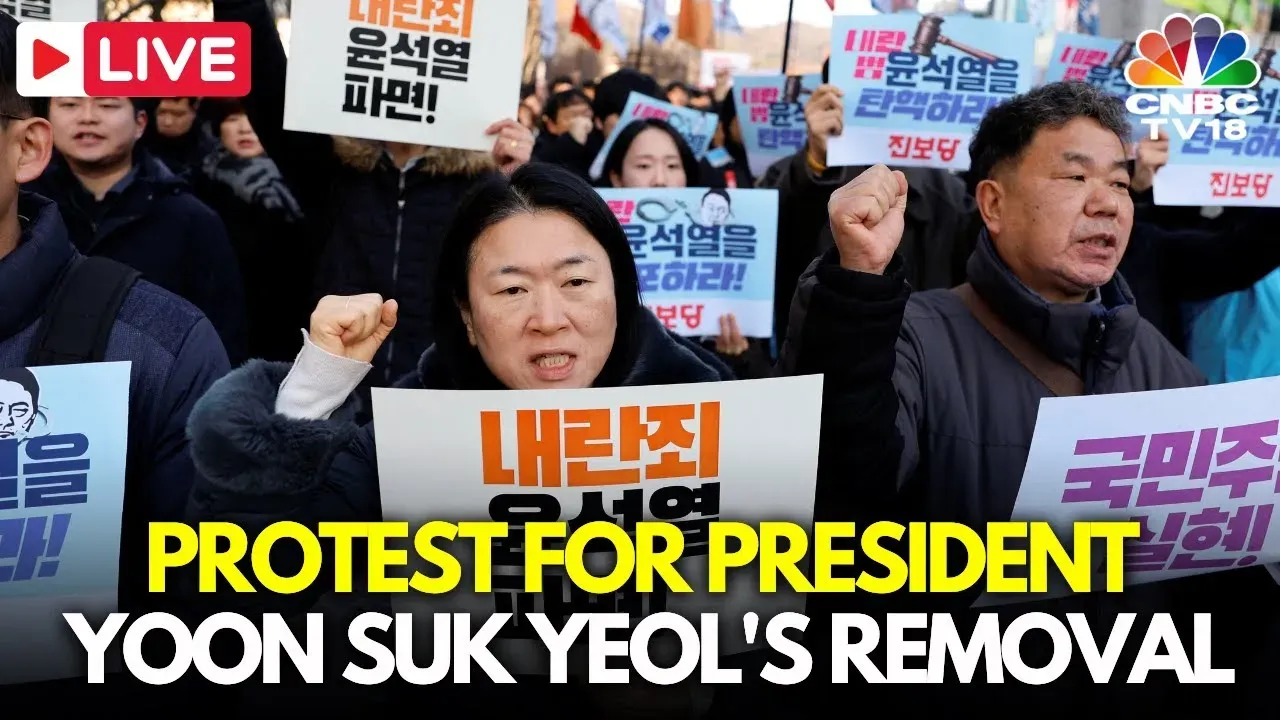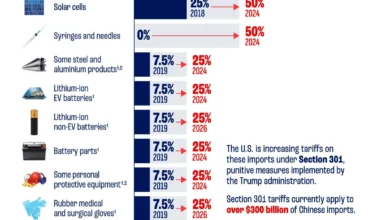Yoon Suk Yeol Removal: South Korea’s Constitutional Court Ruling

The recent removal of Yoon Suk Yeol marks a significant chapter in South Korea’s ongoing political turmoil. On Friday, the Constitutional Court delivered a unanimous verdict that ousted Yoon from office, highlighting the ramifications of his controversial martial law declaration just four months earlier. This historic decision underscores the court’s stance on presidential impeachment matters, as Yoon’s actions were deemed unconstitutional, impacting governance across multiple sectors. With the nation now poised for a new election, many reflect on the grave implications of his presidency and the legal proceedings that ensued. As the dust settles from Yoon Suk Yeol’s abrupt exit, the future of South Korea’s political landscape remains uncertain yet ripe for necessary change.
In the aftermath of Yoon Suk Yeol’s exit from power, South Korea faces a critical juncture, prompting discussions about the integrity and strength of its judicial system. The Constitutional Court’s decisive ruling against Yoon emphasizes the significance of adhering to constitutional mandates, particularly during attempts at authoritarian control via measures like martial law. This moment of reckoning for South Korea presents an opportunity for reflection on the checks and balances of presidential power and the repercussions of failing those principles. As citizens celebrate the court’s commitment to accountability, it becomes increasingly vital to analyze how these events will shape the future of democratic governance in the nation. The implications of this political upheaval extend far beyond a single presidency, resonating throughout South Korean society and its democratic institutions.
The Unfolding Political Turmoil in South Korea
South Korea has faced significant political upheaval in recent months, culminating in the Constitutional Court’s unanimous decision to remove Yoon Suk Yeol from office. This ruling marked a pivotal moment in South Korea’s political landscape, as the country grappled with the implications of Yoon’s controversial martial law declaration. The court’s assertion that Yoon’s actions were unconstitutional highlights the increasing tensions surrounding governmental authority and civil rights, raising questions about the future of democratic governance in South Korea.
The political turmoil has sparked widespread debate among citizens and lawmakers alike. Many believe that the court’s decision signifies a triumph for the rule of law, while others view it as a chaotic response to perceived governmental overreach. This incident shines a spotlight on the intricate relationship between the South Korean political system and its constitutional framework, reinforcing the notion that the judiciary plays a crucial role in maintaining checks and balances.
The Constitutional Court’s Verdict: A Historic Moment
The South Korea Constitutional Court’s decision to remove Yoon Suk Yeol has been described as a historic verdict that underscores the importance of upholding constitutional order. The acting chief justice, Moon Hyung-bae, articulated the severity of Yoon’s breach of laws, noting that his martial law declaration led to significant societal unrest and confusion. By limiting the powers of the presidency, this ruling serves as a reminder of the necessity to abide by constitutional principles to safeguard democracy.
This moment not only concludes Yoon’s presidency but also sets a precedent for the future conduct of South Korean leaders. The court’s ruling emphasizes the legal ramifications of state emergency declarations and reflects a political environment that is increasingly intolerant of actions perceived to subvert democracy. The implications of this verdict will likely resonate in future political discourse, prompting discussions about accountability and the limits of executive power.
The Aftermath of Yoon Suk Yeol’s Presidency
In the wake of Yoon Suk Yeol’s removal, South Korea is now poised for a new election, which could reshape the country’s political landscape. Voter sentiment appears to be heavily influenced by recent events, with many citizens eager for change after months of political instability. The necessity for strong leadership will be a focal point in the upcoming campaigns, as candidates will need to address the mistakes of the past while proposing viable solutions for the nation’s future.
Moreover, Yoon’s abrupt removal and the circumstances surrounding it are likely to affect public trust in government institutions. Political analysts suggest that this event could lead to a more engaged electorate, as citizens become increasingly vigilant about their leaders’ adherence to constitutional obligations. The process of rebuilding trust and confidence will be paramount for the next administration, as it seeks to restore stability in a country reeling from the impacts of political mismanagement.
Reactions to the Ruling: Public and Political Response
The reaction to the Constitutional Court’s ruling has been mixed, with jubilant celebrations from protesters who viewed Yoon Suk Yeol’s removal as a victory for democracy. Many citizens took to the streets, expressing their relief and hope for a new beginning free from the heavy-handed approaches that characterized Yoon’s presidency. This public response signifies a turning point in how the South Korean populace engages with political issues, reflecting a desire for more participatory governance.
On the political front, reactions have been equally diverse, with some lawmakers applauding the court’s decision as a necessary step in restoring constitutional integrity. Yet, there are also voices of dissent claiming that the ruling could set a dangerous precedent for political accountability. This divergence illustrates the complexities within South Korea’s political sphere, emphasizing the need for dialogue and collaboration moving forward, especially in light of the last few months of tumult.
Martial Law Declaration: The Legal Implications
Yoon Suk Yeol’s declaration of martial law served as a critical moment that triggered extensive legal scrutiny and ultimately led to his downfall. The Constitutional Court’s unanimous decision not only reflects disapproval of that declaration but reinforces the legal frameworks established to prevent such actions from recurring. This highlights the necessity for government officials to remain within the bounds of the law, as violations can result in significant political and legal consequences for leaders.
Legally, the court’s ruling serves as a warning against the use of emergency powers that could infringe upon civil liberties. The ruling reaffirms the constitutional safeguards against the abuse of executive authority, ensuring that citizens’ rights are protected. It sets a benchmark for future administrations to follow, emphasizing that any declaration or action with substantial implications on governance must be rigorously justified within the parameters of established laws.
Lessons Learned from Yoon’s Presidency and Removal
The tumultuous events surrounding Yoon Suk Yeol’s presidency provide crucial lessons for future South Korean leaders. One significant takeaway is the importance of maintaining transparency and accountability in the exercise of power. Yoon’s approach led to widespread distrust and public dissent, which ultimately culminated in his removal. Future leaders must prioritize communication and engagement with the public to foster a more stable political climate.
Additionally, the challenges faced during Yoon’s term underscore the significance of constitutional adherence in governance. As various stakeholders learn from his presidency, there is a burgeoning recognition that executive actions must align with constitutional principles to avoid similar political crises. Leaders will need to constantly balance their authority with the ongoing need to respect civil liberties and uphold democratic values.
Future of South Korean Politics Post-Yoon Administration
The future of South Korean politics looks uncertain following the ousting of Yoon Suk Yeol. As the nation anticipates new elections, political parties will be tasked with addressing the pressing concerns that have emerged from recent instability. Candidates will be expected to articulate clear policies that reflect the desires of a population eager for change, particularly in light of the martial law controversy.
Moreover, this transitional period presents an opportunity for political reform. Emerging leaders may seek to establish a new paradigm of governance that emphasizes collaboration, responsiveness, and accountability. The impact of Yoon’s presidency will linger, but it can also serve as a catalyst for a renewed commitment to democratic principles and a redefined approach to political leadership in South Korea.
Implications for South Korean Democracy
The recent events surrounding Yoon Suk Yeol’s presidency have significant implications for the state of democracy in South Korea. The Constitutional Court’s ruling is indicative of a judiciary willing to challenge the executive branch and uphold constitutional norms, suggesting a robust democratic framework that actively safeguards civil liberties. It exemplifies the crucial role that independent courts play in fostering political accountability.
As the dust settles after Yoon’s removal, there is a potential for a renewed emphasis on civic education and engagement among the electorate. Citizens may become more vigilant and active in monitoring governmental actions, cultivating a politically informed public. This engagement could ultimately strengthen democratic institutions and rebuild public confidence in government processes, highlighting the enduring resilience of South Korea’s democratic spirit.
The Role of Civil Society in Political Changes
Civil society has proven an essential force in South Korea’s recent political changes, particularly surrounding the ousting of Yoon Suk Yeol. Grassroots movements and activist organizations played a pivotal role in mobilizing public opinion against Yoon’s actions, particularly his declaration of martial law. These collective actions illustrate the power of societal engagement in shaping political narratives and outcomes.
Looking forward, the relationship between civil society and the state could influence the political landscape significantly. A stronger civil society can enhance democratic governance by holding leaders accountable and advocating for transparency and reform. As South Korea navigates the aftermath of Yoon’s presidency, the role of engaged citizens in sustaining democratic ideals has never been more critical.
Frequently Asked Questions
What led to the removal of Yoon Suk Yeol by the South Korea Constitutional Court?
Yoon Suk Yeol was removed from office by the South Korea Constitutional Court due to his unconstitutional actions, particularly his declaration of martial law, which was deemed to have caused severe political turmoil in South Korea. The court found that his actions violated the constitution and laws, leading to serious societal and economic confusion.
How did Yoon Suk Yeol’s martial law declaration impact his presidency?
Yoon Suk Yeol’s martial law declaration significantly impacted his presidency by escalating political turmoil in South Korea. The Constitutional Court’s ruling emphasized that this breach of constitutional norms shocked the populace and disrupted various sectors, ultimately leading to his impeachment and removal from office.
What are the implications of Yoon Suk Yeol’s impeachment on future South Korean politics?
The impeachment of Yoon Suk Yeol signals a critical moment in South Korean politics, as it reinforces the judiciary’s role in upholding constitutional order. It may lead to increased scrutiny of future leaders and their adherence to the law, as well as prompting discussions on political accountability and reform.
What were the main criticisms against Yoon Suk Yeol that led to his removal?
The main criticisms against Yoon Suk Yeol included his unconstitutional declaration of martial law, which was seen as a return to authoritarian practices. The Constitutional Court highlighted that his actions not only violated laws but also had grave consequences for South Korea’s societal, political, and economic stability.
What happens next after the removal of Yoon Suk Yeol?
Following the removal of Yoon Suk Yeol, South Korea will hold a new election to elect a successor. This transition is crucial for restoring political stability and addressing the ongoing challenges faced by the nation as a result of his presidency and the associated political turmoil.
How did the public react to Yoon Suk Yeol’s removal from office?
Public reaction to Yoon Suk Yeol’s removal was largely positive, with many protesters expressing jubilation at the Constitutional Court’s decision. This reflects widespread dissatisfaction with his leadership and a collective desire for a change in direction after a period of political instability in South Korea.
What charges were considered during the presidential impeachment of Yoon Suk Yeol?
During the presidential impeachment of Yoon Suk Yeol, the charges primarily focused on his declaration of martial law, which was viewed as unconstitutional. The Constitutional Court concluded that this action significantly undermined the constitutional order, indicating serious violations of law and governance.
Who will succeed Yoon Suk Yeol after his removal?
The process for identifying Yoon Suk Yeol’s successor will involve conducting a new election in South Korea, where citizens will have the opportunity to vote for a new leader. The eventual successor will be tasked with addressing the political fallout and restoring public confidence.
| Key Point | Details |
|---|---|
| Constitutional Court Decision | Unanimously removed Yoon Suk Yeol from office. |
| Martial Law Declaration | Declared martial law which was deemed unconstitutional. |
| Impact of Actions | Yoon’s actions created national turmoil affecting various sectors. |
| Court’s Verdict | Judged Yoon’s actions as having a grave impact on the country’s constitutional order. |
| Public Reaction | Protests erupted in jubilation following the court’s decision. |
Summary
Yoon Suk Yeol’s removal marks a pivotal point in South Korea’s political history. His presidency, which began with high expectations, was abruptly cut short by his unconstitutional declaration of martial law. This decision not only led to significant social unrest but also prompted stern legal repercussions from the Constitutional Court, underscoring the crucial role of constitutional law in the nation. As South Korea gears up for new elections, the aftermath of Yoon’s presidency will undoubtedly shape the political landscape for years to come.




